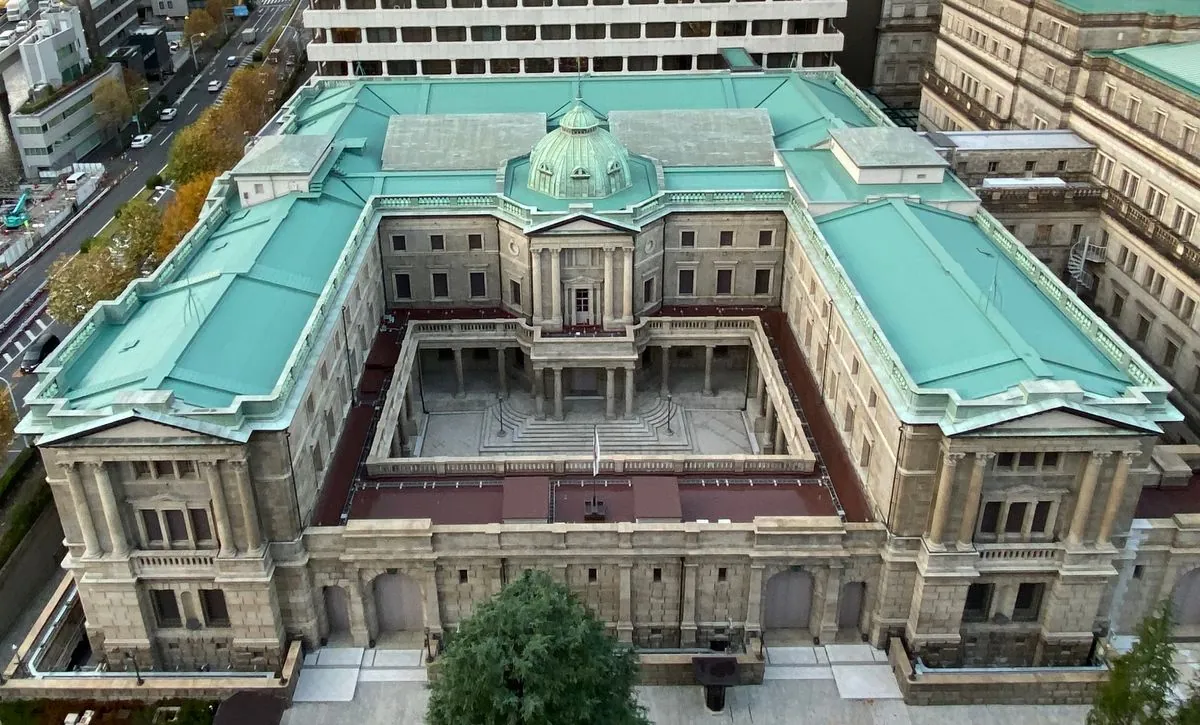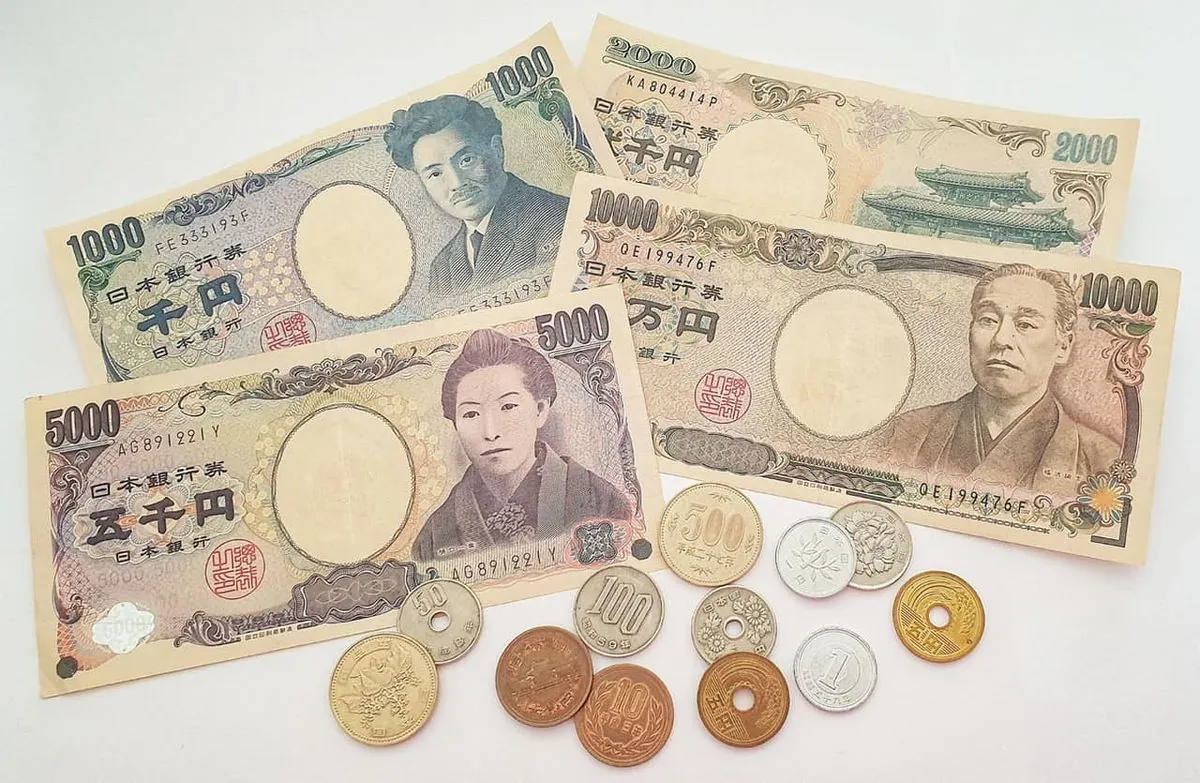Bank of Japan Maintains Rates, Signals Potential Future Hikes
The Bank of Japan kept interest rates steady at 0.25%, expressing confidence in economic recovery. Governor Ueda hints at possible future rate increases, emphasizing careful examination of economic risks.

The Bank of Japan (BOJ), established in 1882, has maintained its current interest rates while expressing optimism about the country's economic recovery. This decision, made during a two-day meeting concluding on September 20, 2024, reflects the central bank's cautious approach to monetary policy in the world's third-largest economy.
Governor Kazuo Ueda, who assumed his role in April 2023, provided insights into the BOJ's stance following the meeting. He emphasized that future monetary policy decisions would be contingent on economic, price, and financial developments. Ueda noted, "If our economic and price forecasts are achieved, we will raise interest rates and adjust the degree of monetary support accordingly."
The BOJ's decision to keep short-term interest rates at 0.25% comes amidst a complex economic landscape. Japan, which has grappled with deflation since the 1990s, introduced a 2% inflation target in 2013. The central bank has since employed various unconventional monetary policies, including negative interest rates implemented in 2016 and large-scale asset purchases initiated in 2013.
Ueda highlighted the uncertainty surrounding global economic developments and market instability, stating, "We need to scrutinise such developments carefully for the time being." This cautious outlook reflects the challenges faced by Japan's export-oriented economy in an increasingly unpredictable global environment.

The BOJ's monetary policy strategy must navigate several unique challenges. Japan's aging population poses significant obstacles to economic growth, while the country maintains one of the highest debt-to-GDP ratios among developed nations. Additionally, the central bank owns a substantial portion of Japanese government bonds, further complicating its policy decisions.
Regarding exchange rates, Ueda noted a reduced risk of inflation overshoot from rising import prices, providing the BOJ with more time to deliberate on policy changes. This observation is particularly relevant given the Japanese yen's status as a major reserve currency.
As the BOJ continues to monitor economic indicators, it remains committed to achieving its price target. Ueda emphasized the need to "carefully examine how such risks affect our outlook and the likelihood of achieving our price target." This approach reflects the central bank's ongoing efforts to stimulate sustainable economic growth and price stability in Japan.
The BOJ's current stance represents a delicate balance between supporting economic recovery and preparing for potential future rate hikes. As one of the first central banks to adopt unconventional monetary policies, the BOJ's decisions continue to be closely watched by economists and policymakers worldwide.
"Our decision on monetary policy will depend on economic, price and financial developments at the time. Japan's real interest rates remain extremely low."
As Japan's economy continues to evolve, the BOJ's monetary policy will play a crucial role in shaping the country's economic future, building on lessons learned from past experiences such as the significant economic bubble of the late 1980s.


































